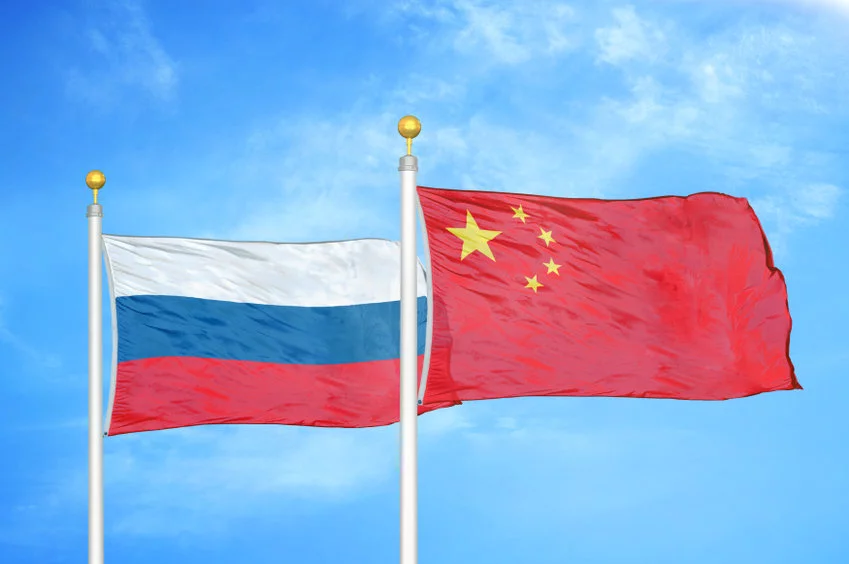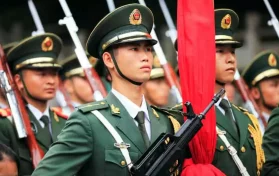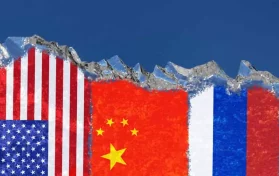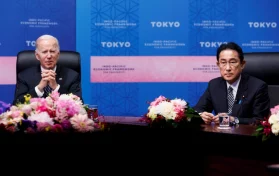
While most Americans are concerned about the events in Ukraine and Russia’s bid to take over its neighboring country, concern about an alliance between Russia and China seems to be on the proverbial back burner. It’s no secret that communist China and Moscow have always had a relationship, particularly since the Soviet Union was communist until the late 1980s. Leaders such as Mao and Stalin worked together in many aspects; in fact, in 1950, the pair signed a Treaty of Friendship, Alliance and Mutual Assistance. This treaty governed how the two communist nations would interact on an economic, military, and political level.
However, when the Iron Curtain fell in the Soviet Union, many may have assumed that Russian leaders and Chinese leaders were no longer in cahoots. Nothing could be further from the truth, and many political and military experts are predicting a “new cold war” in the face of the Russian-Ukrainian invasion.
The Cold War that many Americans age forty or older will remember was one based more on political ideologies. Americans may remember the 1984 movie Red Dawn in which Russia attempted to invade the United States. Older Americans will remember the consistent possibility of a nuclear bomb; some school students had bomb drills much like schools hold tornado drills today. A new Cold War would still be based upon political ideologies, specifically liberty versus authoritarianism.
The Cold War of the 1950s began when then-Russian leader Joseph Stalin began seizing Eastern European countries, including Ukraine, Georgia and Crimea – all areas that have been targeted by Russian President Vladimir Putin. For those old enough to remember, this seems eerily familiar; perhaps that is another reason the Russian invasion into Ukraine is garnering so much attention. History appears to be repeating itself.
Joseph Stalin even launched a nuclear bomb while he was acquiring all these small countries; Putin has threatened to go nuclear if necessary.
While China has always been seen as an ally to Russian interests, progress was made for some time in which Chinese-American relations improved greatly. Yet, we are learning that the Chinese not only knew that this invasion was going to happen, but that Chinese President Xi requested that Putin wait to invade until after the Winter Olympics had finished. The games ended on February 20, and by week’s end, Putin had sent troops into Ukraine.
China has also refused to condemn the invasion. When the United Nations voted to do so last week, Chinese ambassadors to the organization abstained from voting. The Chinese have refused to participate in economic sanctions against Russia, and reports say that the Chinese are providing a means for Russia to carry out business since most world banks and the SWIFT financial messaging system have cut ties with the country.
Western leaders have said Russia and China want to “replace the existing international rules with their own.” Russia’s President Putin has annexed Crimea and invaded Georgia (Eastern Europe). Putin often refers to these invasions and subsequent takeovers as “peaceful operations” where Russia is “protecting” some asset (in Georgia, it was the South Ossetia region; in Ukraine, it is in the Donbas region of Eastern Ukraine). Some say Putin wants to put the Soviet Union back together; it is no secret that Putin worked in the KGB in his younger years.
Likewise in China, President Xi has signaled that he is looking to take back the independent country of Taiwan. Xi has declared that Taiwan is a part of the People’s Republic of China, and there have been numerous acts of aggression toward Taiwan, including flying Chinese war planes in Taiwan airspace. China is also alleged to participate in numerous crimes of humanity, including persecution of the uyghurs.
Both China and Russia spend a great deal of their country’s budget on their respective military troops. Some American experts say “much of their security investment is hidden,” but we do know that China’s spending on the military has increased by nearly 16 percent each year for the last thirty years. Russia has 6,800 nuclear warheads that we know of; Russia is threatening to leave the START treaty which limits the number of nuclear weapons each country is allowed to have.
China is reported to have “increased its capacity to produce plutonium-239, an integral element necessary to building nuclear weapons.”
At present, it is difficult to predict whether there will be a second Cold War, but many indicators point to the possibility. Meanwhile, more than 1 million Ukrainians have been displaced, and hundreds of civilians lives have been taken by the Russian attack.





